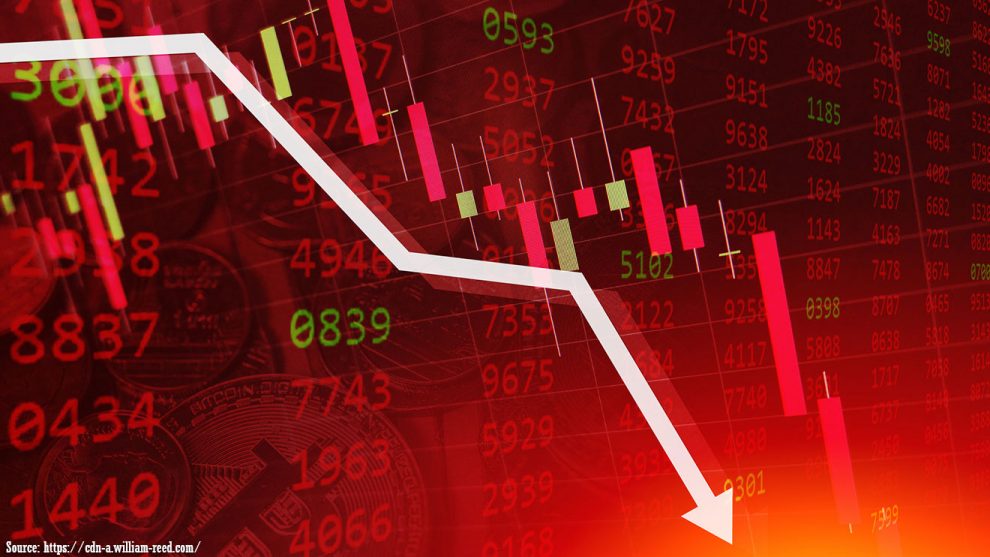Covid-19 impact: As per the IMF, the global economy is assumed to shrink by over 3 percent in 2020 – the steepest slowdown since the Great Depression of the 1930s.
Amid the coronavirus pandemic, several countries across the world resorted to lockdowns to “flatten the curve” of the infection. These lockdowns meant confining millions of citizens to their homes, shutting down businesses, and ceasing almost all economic activity. As per the IMF, the global economy is predicted to contract by over 3 percent in 2020 – the steepest slowdown since the Great Depression of the 1930s.
Now, as some countries lift restrictions and slowly restart their economies, here’s a look at how the pandemic has changed them and how they have coped.
How Bad Has the Economy Been Hit?
The covid-19 pandemic has driven the global economy into a recession, which means the economy begins shrinking and growth stops.
In the US, Covid-19-related disorders have led to millions of filing for unemployment advantages. In April alone, the values were at 20.5 million, and are expected to rise as the influence of the pandemic on the US labor market worsens. As per a Reuters report, since March 21, more than 36 million have filed for unemployment advantages, which is almost a quarter of the working-age group.
Further, a new analysis by IMF discloses that the manufacturing output in many nations has gone done, which indicates a fall in external demand and rising expectations of a fall in domestic demand.
Coronavirus (COVID-19) and Global Growth
The IMF’s estimation of the global economy growing at -3 percent in 2020 is a result of “far worse” in comparison to the 2009 global financial crises. Economies such as the US, Germany, France, Japan, the UK, Italy, and Spain are supposed to decline this year by 5.9, 5.2, 6.5, 7, 7.2, 9.1, and 8 percent sequentially.
Superior economies have been hit harder, and collectively they are assumed to grow by -6 percent in 2020. Developing markets and developing economies are anticipated to contract by -1 percent. If China is omitted from this pool of countries, the growth scale for 2020 is expected to be -2.2 percent.
China’s GDP declined by 36.6 percent in the first quarter of 2020, while South Korea’s output fell by 5.5 percent after the country didn’t force a lockdown but pursued a policy of aggressive testing, contact tracing and quarantining.
In Europe, the GDPs of France, Spain, and Italy fell by 21.3, 19.2, and 17.5 percent, respectively.
Oil and Natural Gas
Due to the drop in travel, the global automated movement has been stirred. Oil prices declined further in March as the transportation sector, which accounts for 60 percent of the oil demand, was hit due to many countries forcing lockdowns.
Not only oil, early this year in China, due to Covid-19-related containment measures, but the requirement for natural gas also dropped, as a result of which many Chinese LNG consumers paused their imports as storage tanks filled.
Industrial Metals
Due to lockdowns in China, succeeded by in the US and Europe, the demand for industrial metals decreased as factories shut down. As per IMF, China estimates for roughly half of the global market for industrial metals.
Food and Beverages
IMF forecasts a decrease in food prices by 2.6 percent in 2020, produced by supply chain interruptions, border delays, food security matters in regions influenced by Covid-19 and export restrictions.
In the lockdown phase, while the cost of cereals, oranges, seafood, and arabica coffee has risen, prices of tea, meat, wool, and cotton have decreased. Further, the drop in oil prices has put downward tension on the costs for palm oil, soy oil, sugar, and corn.
How Have Countries Coped?
As per evaluation by the World Economic Forum (WEF), assisting SMEs and larger companies is crucial for managing employment and financial balance.
In India, Finance Minister Nirmala Sitharaman has stated some aspects of the Atmanirbhar Bharat Abhiyan package, to grant support to Medium, Small and Micro Enterprises (MSMEs) in the form of an improvement in credit guarantees.
Several advanced economies in the world have turned out support packages. While India’s economic stimulus package is 10 percent of its GDP, Japan’s is 21.1 percent, followed by the US (13 percent), Sweden (12 percent), Germany (10.7 percent), France (9.3 percent), Spain (7.3 percent) and Italy (5.7 percent).
However, the WEF notes, “…there is a matter that the dimension of packages may demonstrate unfinished for the duration of the crisis; that payment may be slower than is required; that not all firms in need would be targeted; and that such programs may be overly reliant on debt funding.”
In Asia, nations including India, China, Indonesia, Japan, Singapore, and South Korea account for about 85 percent of all the Covid-19 matters on the continent.
South Korea stands out, since trade and economic ventures were not fully stopped, and therefore, their economy was not seriously harmed.
China lately lifted its lockdown and has since then been slowly reopening its economy without an intrusive second wave of infections so far.
Moreover, even as economic activity resumes gradually, the situation will take time to normalize, as consumer behaviors shift as a result of continued social distancing and doubt about how the pandemic will emerge.
For example, in its World Economic Outlook report for 2020, the IMF declares that firms may start hiring more people and increasing their payroll only gradually, as they may not be clear about the demand for their output.
Hence, along with transparent and productive communication, large monetary and fiscal stimuli will be needed to be coordinated on an international scale for maximum influence and “would be most effective to raise spending in the recovery phase.”
For more updates and news, stay in touch with us. Subscribe to our Newsletter to be the first reader. Kindly share your comments and views on the same. We are looking forwarding to them. Stay Connected!





Add Comment